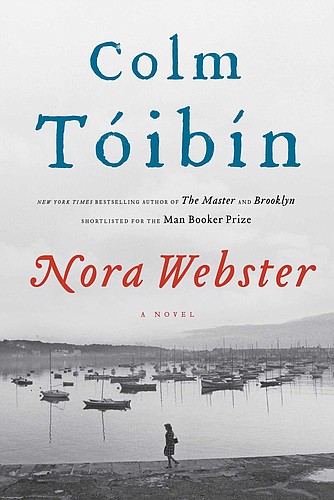- November 24, 2024
-
-
Loading

Loading

In his newest novel, “Nora Webster,” Colm Tóibín examines the life of his titular character in the months and years following the loss of her young husband to heart disease. In doing so, Tóibín avoids melodrama entirely; instead, he adopts a narrative style that is restrained and unadorned. This approach facilitates Tóibín’s creation of an astonishing protagonist who is detached, impulsive, self-absorbed, tremendously compelling and entirely believable.
“Nora Webster” is set in Ireland in the late 1960s and early 1970s, with the Troubles looming and Bloody Sunday on the horizon. In Enniscorthy, County Wexford, Nora Webster is grieving her husband’s recent death. Maurice Webster, Nora’s husband, was well-loved and respected by all, including Nora, who remained a fixture at Maurice’s bedside in the final months of his life while delegating the care of their children to family members. Nora is now left without savings to rear her two young sons and financially provide for two older daughters who are studying in Dublin.
As she adjusts to widowhood, Nora has a series of dawning realizations that those around her feel the impact of her husband’s absence as acutely — if not in the same ways — as she does. Foremost among these characters is Nora’s older son, Donal, who has become increasingly withdrawn and developed a stammer since his father’s death. Moreover, Nora is frequently confronted with the fact that her own methods of dealing with her husband’s illness and death have exacerbated, or at the very least contributed to, her children’s emotional difficulties. But Nora handles these realizations only passively, consistently adopting a strategy of avoidance and deciding that most questions about the thoughts and feelings of others are better left unasked.
Nora’s strategy of letting issues resolve themselves is representative of the narrative as a whole. The plot provides several opportunities for crises to escalate but, rather than turning to melodrama, in each instance Tóibín characteristically chooses instead to allow crises to unfold gradually, a strategy that makes “Nora Webster” all the more believable.
“Nora Webster” is an uncommon novel. Nora is a complicated, often selfish and not entirely likeable character. But she and the novel that shares her name are both compelling and evocative because of the honesty and simplicity with which Tóibín has created them.
“Nora Webster” is available at Bookstore1Sarasota, 1359 Main St., Sarasota. Call 365-7900 for more information.
December’s top 10 fiction titles at Bookstore1:
“All the Light We Cannot See” by Anthony Doerr
“Orphan Train” by Christina Baker Kline
“My Brilliant Friend” by Elena Ferrante
“Gray Mountain” by John Grisham
“Let the Great World Spin” by Colum McCann
“City of Thieves” by David Benioff
“The Storied Life of A. J. Fikry” by Gabrielle Zevin
“The Book Thief” by Markus Zusak
“The Escape” by David Baldacci
“The Burning Room” by Michael Connelly